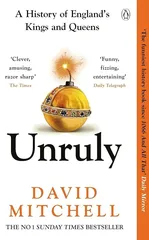Sartre, Nietzsche and Non-Humanist Existentialism
(Author) David MitchellThis book argues that existentialism’s concern with human existence does not simply make it another form of humanism. Influenced by Heidegger’s 1947 ‘Letter on Humanism’, structuralist and post-structuralist critics have both argued that existentialism is synonymous with a naïve ‘humanist’ idea of the subject. Such identification has led to the movement’s dismissal as a credible philosophy; this book aims to challenge such a view. Through a lucid and thought-provoking exploration of the concept of perversity in Sartre and Nietzsche, Mitchell argues that understanding the human as a ‘perversion’ of something other than itself allows us to have a philosophy of the human without the humanist subject. In short, through perversion, we can talk about the human as not merely having a relation to the world, but of being that relation. With an explicit defence of Sartre against the charge of humanism, accompanied by a novel and distinctive reinterpretation of Nietzsche, Mitchell recovers an existentialism that is at once both radical and philosophically relevant.
David Mitchell
David Mitchell is a British author known for his intricate narratives that blend multiple genres and styles. His most notable works include "Cloud Atlas," a novel that weaves together six interconnected stories spanning different time periods and genres, and "The Bone Clocks," a complex tale of immortality and destiny. Mitchell's literary style is characterized by his ability to seamlessly blend realism and fantasy, creating rich and immersive worlds for his readers. His contributions to literature include challenging traditional storytelling conventions and pushing the boundaries of genre fiction. "Cloud Atlas" is widely considered his most famous work, earning critical acclaim and a devoted following of readers. Mitchell's impact on the literary genre has been profound, inspiring other authors to experiment with structure and genre blending in their own works.





